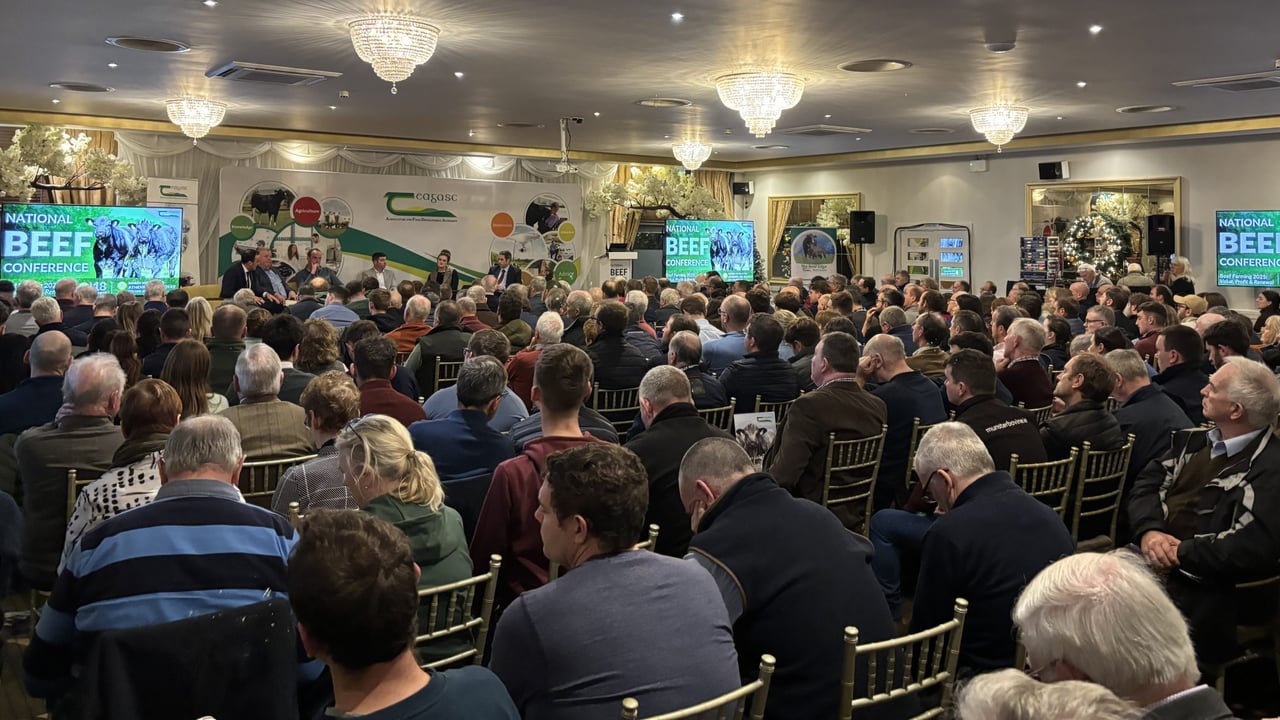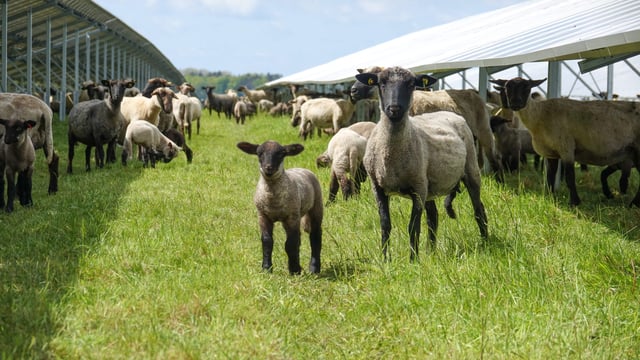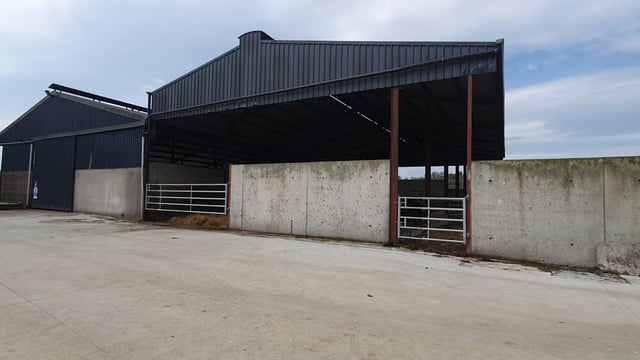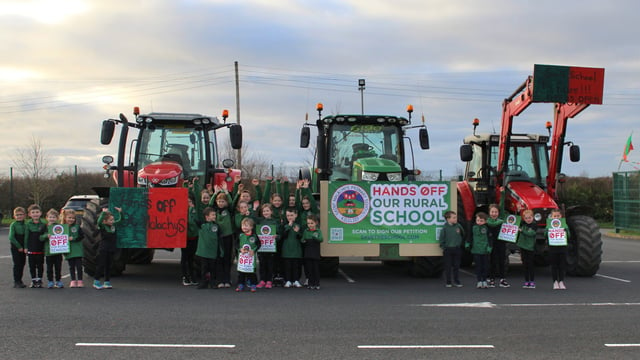Beef conference: Weanlings, markets, succession and tax planning
Large crowds of farmers and industry stakeholders attended the 2025 Teagasc National Beef Conference which took place at the Raheen Woods Hotel, Athenry, Co. Galway, last night (Tuesday, November 18).
The theme of this years' National Beef Conference was 'Beef Farming 2025: Value, Profit and Renewal' and heard from an interesting range of speakers.
The welcoming address was delivered by Teagasc regional manager, Pat Clarke, while Teagasc director Prof. Frank O’Mara set the scene for the event in his delivery of the opening address.
O'Mara said: "Over the past year, we have witnessed significant increases in beef prices both globally and on the home market.
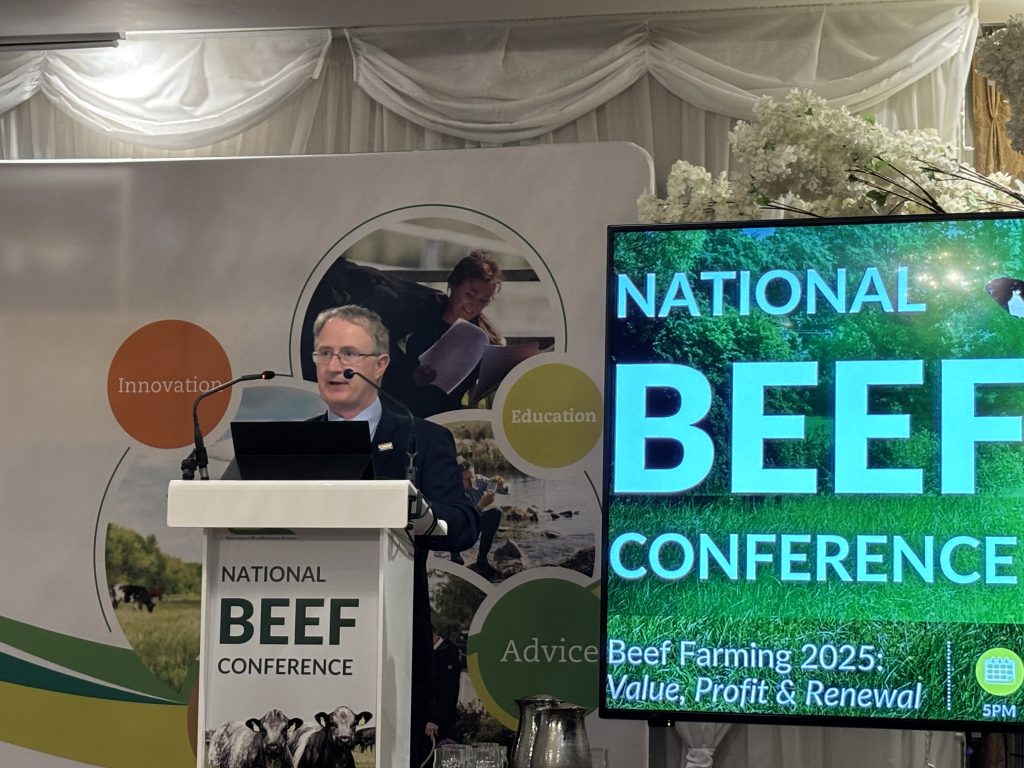
"This rise, coupled with higher cattle values across all age categories, has injected a renewed sense of confidence among beef farmers.
"As a result of stronger market returns and relatively stable input costs, Teagasc forecasts that average farm incomes for cattle-rearing enterprises will increase substantially in 2025, while cattle-finishing farms are also expected to record major income gains compared to recent years.
"Confidence within the beef sector - particularly among suckler calf producers - is at an all-time high."
Session one focused on all aspects of producing high-value weanlings from breeding decisions to market demand.
A research paper from Teagasc's David Kenny that explored suckler cow management for fertility and performance was discussed at the event.
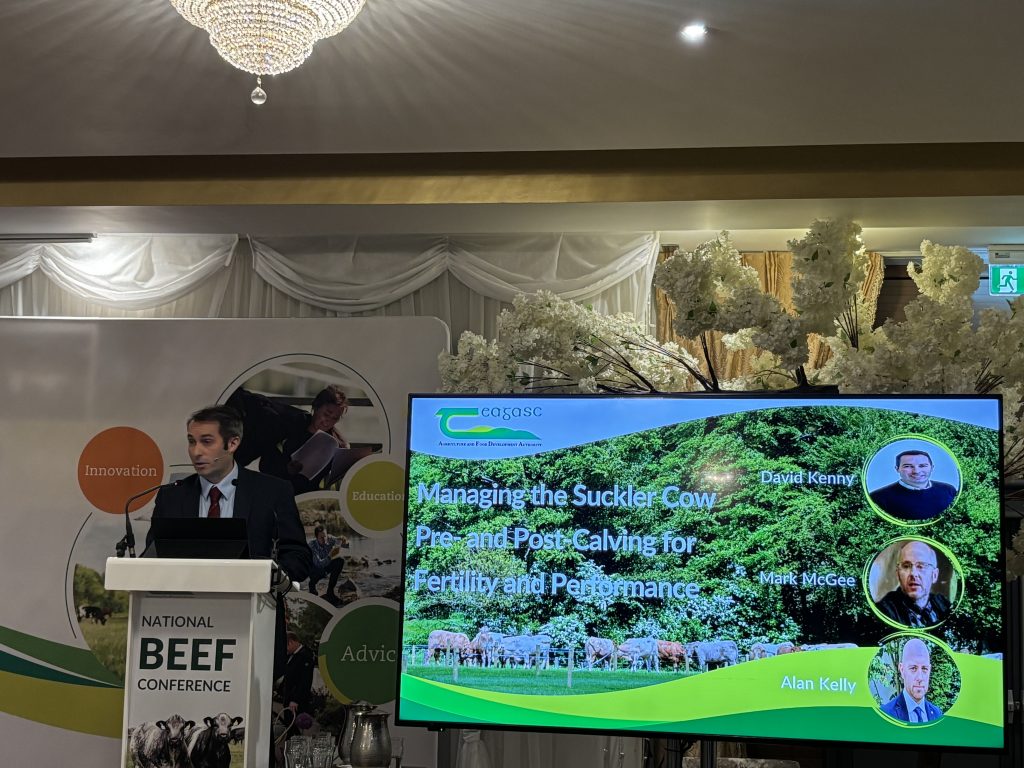
It noted that underconditioned cows at calving will take at least two to three weeks longer to resume normal heat cycles.
The paper also found that over four out of every five calves born to suckler cows are sired by natural-service bulls and that bull fertility is key to maintaining a compact calving period and overall herd profitability.
The presentation also included an interesting guide on the recommended oestrous synchronisation / timed artificial insemination (AI) regimen for beef cows over 35 days calved at the time of treatment.
Myostatin gene
The next presentation, which was by Irish Cattle Breeding Federation's (ICBF's) Katie Quigley, gave an informative overview on the myostatin gene in beef breeding.
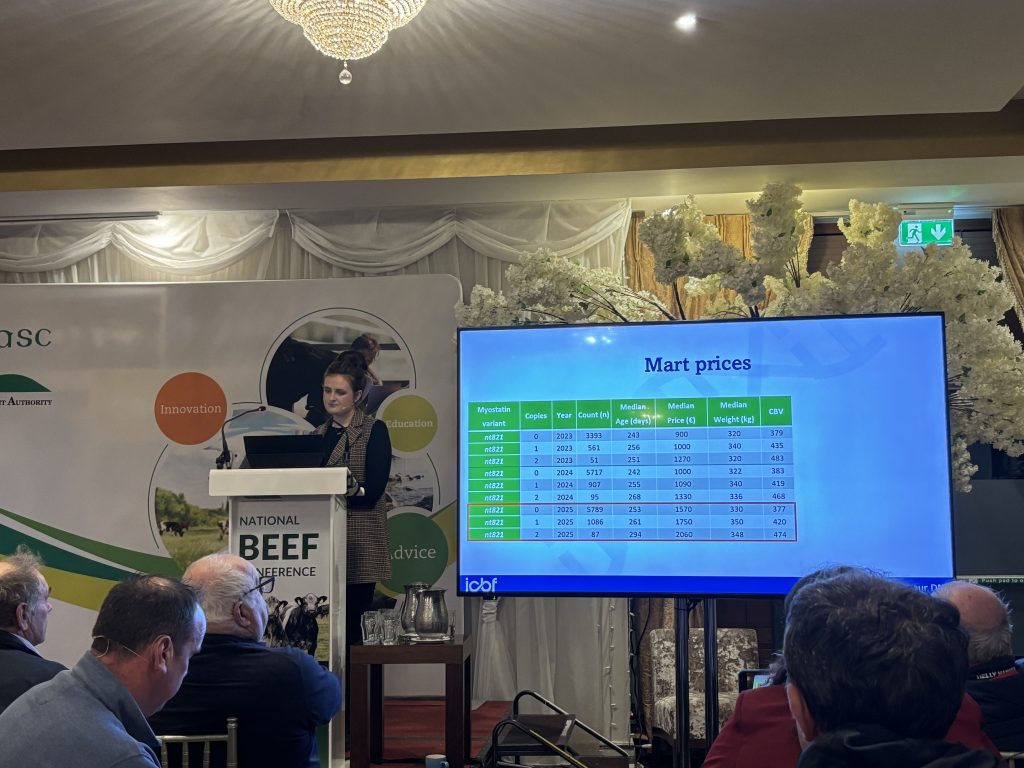
She highlighted that there is growing interest among farmers breeding beef cattle in the role of the myostatin gene and the benefits/challenges it can cause.
Her presentation included market data showing the higher values being achieved for double-muscled cattle.
Quigley explained that the myostatin status "is additional information that may be used when making breeding decisions, but it should be interpreted alongside breeding indexes."
Global supplies
Session two heard from the meat director at Gira Consultancy and Research, Rupert Claxton.
His presentation highlighted that, globally, beef supplies are tight and consumer demand is "remarkably robust".
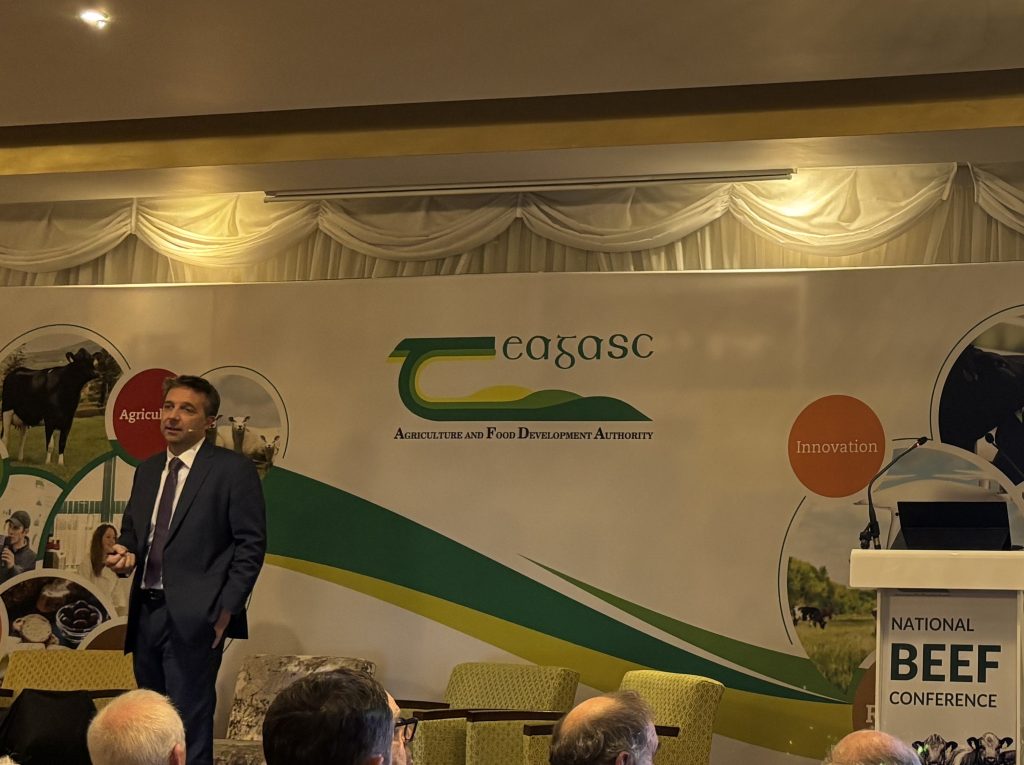
He also noted that several UK retailers have included beef from a variety of non-European sources on their retail shelves during 2025.
Commenting on the outlook for 2026, Claxton said that a "continuation of the current trend, both in Europe and globally" is expected.
He said: "Ireland is well placed to produce more beef in a way that is both environmentally and commercially sustainable."
He added that there are "opportunities for investment in the beef sector but rationalisation at industry and farm level is needed to deliver efficiencies."
Investments
IFAC accountant and beef farmer Trevor Boland delivered a presentation on tax, planning and on-farm investment.
He told farmers: "By investing in your future, family and farm, there are opportunities to make your farm safer and more cost-efficient, at the same time as making suckler and beef farming even more enjoyable."
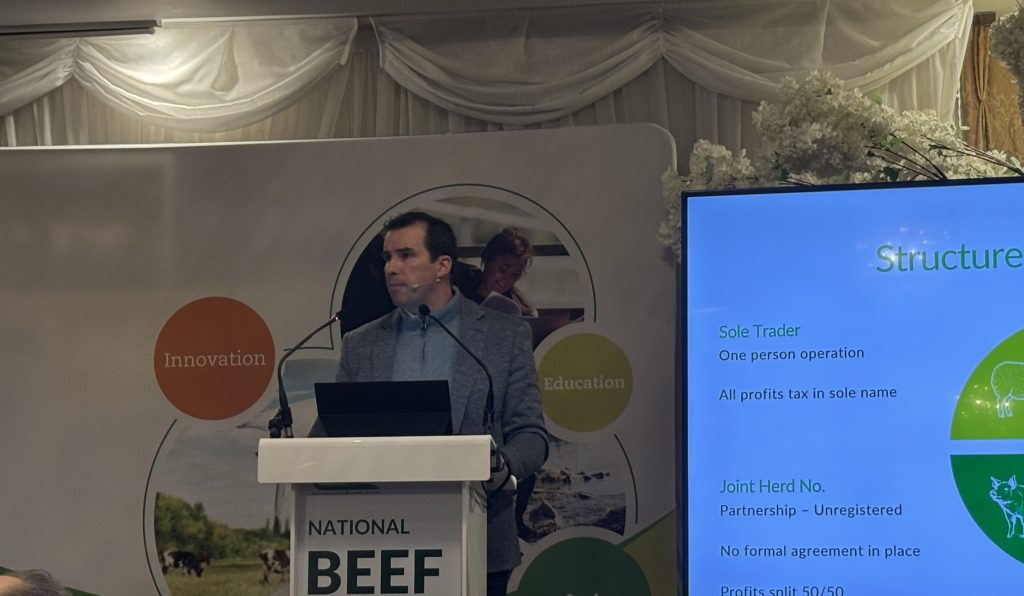
After this presentation, a panel discussion focused on generational renewal on Irish beef farms took place with an insightful discussion between both farmers and Teagasc staff.
Stay tuned to Agriland for further updates and news stories from the 2025 Teagasc National Beef Conference.

